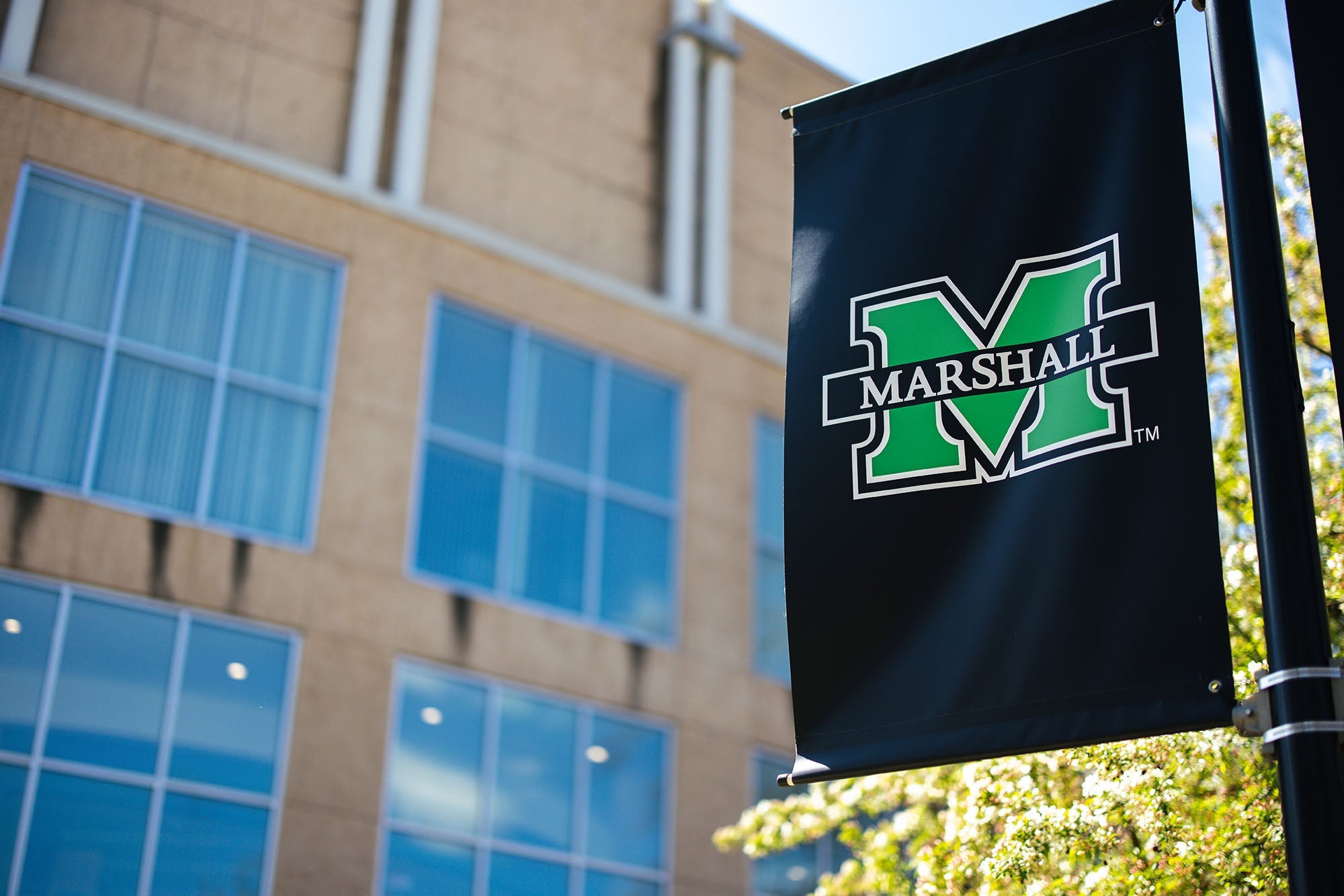

Senate Bill 10, the West Virginia Self-Defense Act or the Campus Self-defense act (§18B-4-5b), was signed into law in the Spring of 2023. The law will allow those with a valid concealed hangun license to carry a concealed weapon in designated areas on the Marshall University campus starting July 1, 2024. The bill only permits the concealed carrying of a pistol or revolver.
Licenses to carry a concealed weapon are issued by the State of West Virginia pursuant to §61-7-4, §61-7-4a or recognized by §61-7-6a of the WV Code. The bill also prevents institutions like Marshall University, the West Virginia Higher Education Policy Commission or the Community and Technical College System, from implementing policies that restrict concealed carry. Marshall University’s policy and procedure for Campus Carry can be found here.
A person who holds a current and valid license to carry a concealed deadly weapon is permitted to carry a concealed pistol or revolver on the campus and in the buildings of a state institution of higher education.
This subsection only applies to areas of the campus and buildings of a state institution of higher education under the custodial possession of the state institution of higher education and does not include areas rented, leased, or under an exclusive agreement for the full-time occupancy and use of a private entity.
There are 12 exceptions to the campus carry law and those are the only times a gun-free zone can be established.
- Organized Events: Concealed carry is prohibited at organized events held in stadiums or arenas with a capacity of more than 1,000 spectators.
- Campus Daycare: Concealed carry is not allowed at campus daycare facilities.
- Law Enforcement Agency: In the secure area of any building used by a law enforcement agency.
- Secure Area: In an area of the property of the state institution of higher education that has adequate security measures in place to ensure that pistols or revolvers are not carried by the public into the area.
- Formal Disciplinary/Grievance Hearings: Concealed carry is not allowed during formal disciplinary or grievance hearings.
- Individual Office Spaces: Sole occupancy offices have the option to be gun free zones. A No Weapons decal can be requested. See below.
- K-12 School-Sponsored Functions: During K-12 school-sponsored events occurring on campus, concealed carry is banned.
- Private Function: A private function being held on campus can be considered weapons free, and a temporary No Weapons sign can be place at the function.
- Prohibited Area: In any area on campus where possession of a firearm is prohibited by state or federal law.
- Patient-Care and Mental Health Spaces: Firearms are prohibited in patient-care areas and mental health/patient care counseling spaces.
- Hazardous Materials or Animal Labs: In high hazardous and animal laboratories, refer to the law for more specifics.
- Residence Hall Rooms: Concealed carry is permitted in common areas such as lounges, dining areas, and study spaces. Note – guns will be stored in a safe in the students’ room, but carrying in other private rooms will not be permitted. (Information is provided below on how to obtain a safe.)
- An employee whose employment responsibilities require him or her to be in an on-campus residence hall and who holds a current and valid license to carry is permitted to carry while present in the residence hall.
- For further detail refer to §18B-4-5b.
Note: Visit this page to see all current exempt locations, including specific offices and rooms.
Marshall University requires that individuals who are licensed to carry concealed handguns do so in a manner that is consistent with state law while on campus. “On or about their person” means that license holders are permitted to carry a holstered handgun in a bag such as a backpack or handbag, provided the bag is within immediate reach and does not require the license holder to significantly alter their position to take control of it. The holster should fully enclose the trigger area and be secure enough to retain the handgun even if subjected to unexpected movement. License holders are prohibited from carrying a handgun that is partially or fully visible on university grounds, which includes buildings, classrooms, labs, dormitories, university driveways, streets, sidewalks, walkways, parking lots, parking structures, and any other parking areas on campus.
Marshall University is dedicated to ensuring a secure atmosphere for all students, staff, university associates, and guests, while also honoring the rights of individuals who are licensed to carry a handgun in accordance with West Virginia law. Marshall University is bound to adhere strictly to West Virginia statutes and cannot implement policies or measures that contravene state law.

July 1, 2024
“Campus Carry” is the common name for the law that authorizes a license holder to carry a concealed handgun at institutions of higher education in West Virginia.
The difference between campus carry and open carry lies in the regulations regarding the carrying of handguns:
- Campus Carry:
- Definition: Campus carry, also known as Senate Bill 10, permits individuals with a valid concealed handgun license (CHL) to carry concealed weapons in specific areas on college campuses, including Marshall University.
- Scope: It applies only to those individuals with a valid license and allows concealed carry in designated areas only.
- Exemptions: Universities can create guidelines and exempt certain parts of campus from the law, but they cannot violate the spirit of the law.
- Open Carry:
- Definition: Open carry refers to the open display of handguns.
- Campus Prohibition: The open carry of weapons on college campuses is not permitted.
In summary, campus carry allows concealed carry with a valid license, while open carry pertains to openly displaying handguns and is prohibited on college campuses in West Virginia.
There are 12 exceptions to the campus carry law and those are the only times a gun-free zone can be established.
- Organized Events: Concealed carry is prohibited at organized events held in stadiums or arenas with a capacity of more than 1,000 spectators.
- Campus Daycare: Concealed carry is not allowed at campus daycare facilities.
- Law Enforcement Agency: In the secure area of any building used by a law enforcement agency.
- Secure Area: In an area of the property of the state institution of higher education that has adequate security measures in place to ensure that pistols or revolvers are not carried by the public into the area.
- Formal Disciplinary/Grievance Hearings: Concealed carry is not allowed during formal disciplinary or grievance hearings.
- Individual Office Spaces: Sole occupancy offices have the option to be gun free zones. A No Weapons decal can be requested. See below.
- K-12 School-Sponsored Functions: During K-12 school-sponsored events occurring on campus, concealed carry is banned.
- Private Function: A private function being held on campus can be considered weapons free, and a temporary No Weapons sign can be place at the function.
- Prohibited Area: In any area on campus where possession of a firearm is prohibited by state or federal law.
- Patient-Care and Mental Health Spaces: Firearms are prohibited in patient-care areas and mental health/patient care counseling spaces.
- Hazardous Materials or Animal Labs: In high hazardous and animal laboratories, refer to the law for more specifics.
- Residence Hall Rooms: Concealed carry is permitted in residence hall common areas such as lounges, dining areas, and study spaces. A residence hall student with a valid concealed carry permit is required to store their weapons in their own room in a safe rented from the university’s approved vendor. Concealed carry is not permitted in other students’ residence hall rooms.
- An employee whose employment responsibilities require him or her to be in an on-campus residence hall and who holds a current and valid license to carry is permitted to carry while present in the residence hall.
- For further detail refer to §18B-4-5b.
Note: Visit this page to see all current exempt locations, including specific offices and rooms.
Please contact the front desk at Housing and Residence Life at 304-696-6765 or email housing@marshall.edu for additional information. The desk is staffed Monday through Friday from 8 a.m. to 5 p.m.
Guns must be stored in an individual safe in the residence hall room assigned to the student with the valid concealed carry permit. Safes must be rented from the university’s approved vendor, College Products. For more information about renting an approved safe or loft from College Products visit the Housing and Residence Life site.
No. Senate Bill 10, also known as the Campus Self-Defense Act, permits individuals with a valid concealed handgun license to carry a concealed weapon in specific areas on Marshall’s campuses and centers. However, it’s important to note that this law does not allow everyone to carry a concealed weapon; it applies only to those with a valid license.
To be eligible for a concealed handgun license (CHL) in West Virginia, a person must meet the following requirements:
- Age: Applicants must be at least 21 years old to apply for a regular CHL.
- Firearm Training: Applicants must complete a West Virginia concealed carry permit course that provides firearm training.
- Citizenship or Legal Residency: Applicants must be a United States citizen or legal resident.
- County of Residence: Applicants must reside in the county from which they are making the application.
The WV statute covers only handguns. A handgun is a pistol, revolver or other firearm the length of the barrel, which, not including any revolving, detachable, or magazine breech, does not exceed 12 inches. Other weapons, including rifles or shotguns, are not permitted on university property.
Contact the Marshall University Police Department at 304-696-4357 or mupd@marshall.edu with any questions or concerns or for more information.
Personnel can request a “No Weapons” decal through the Maintenance Care Work Order System.
- Submit a work order through the Facilities and Operations Online Work-Order Request, and select “No Weapons” decal in the issue drop down.
- Once the work order is submitted, officials will then physically check the area in question to ensure it meets the “No Gun Zone” requirements as outlined above in the 12 exceptions or in the state law.
- If the area does not meet the requirements, the requestor will be notified, and the work order will be closed.
- If the area meets requirements, the requestor will be notified, and the work order will be forwarded to Facilities and Operations for placement.
- Once Facilities and Operations receives the work order, a staff member will install the decal in the designated area.
- The requestor will receive a notification that installation is complete.

